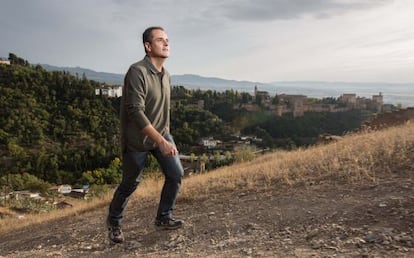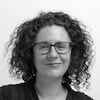"Pope Francis is a man of action, and doesn't beat around the bush"
Forensic scientist José Antonio Lorente received an unexpected call from the Holy See

José Antonio Lorente, a forensic scientist from Andalusia, has no trouble getting up early. He goes jogging at 6.30am every day, and rarely ever takes the time to sit down for lunch. He is so busy investigating and analyzing DNA that he hardly had time to register any amazement at the recent phone call he received from Pope Francis to invite him to the Vatican. This past weekend saw him travel to the Holy See to participate in a seminar to establish an agenda against people-trafficking. EL PAÍS caught up with him shortly after he was contacted by the pontiff.
Question. How did you feel after receiving the call from the pope?
Answer. Very shocked. Bishop Sánchez Sorondo, chancellor of the Pontifical Science Academy and an Argentinean just like the pope, came to Jaén to give a talk at a seminar. The next day I was scheduled to give a talk of my own on behalf of my organization, DNA-ProKids, which takes DNA samples from street children and relatives who have reported a missing child. Sorondo told me the pope wanted my help to fight against people trafficking.
My organization takes DNA samples from relatives who have a missing child"
Q. You are going to be participating in a seminar on that same issue at the Vatican. What are you expecting to achieve?
A. Perhaps the pope will name this "Problem of the Year." I also expect exposure. What is there in the middle of the jungle? Doctors, teachers and priests.
Q. What do you think of the pope?
I've never seen anything through the microscope that God couldn't have made"
A. He is a man who takes action, and doesn't beat about the bush. And he is intelligent. The Church has had a series of chronic problems, some of them very serious, and he has been able to identify them and change tack.
Q. How does your role as a scientist sit with your Catholic faith?
A. I have never seen anything through the microscope that God couldn't have created. Without wanting to sound sanctimonious, I do believe that there is something that will procure justice for the people of this world who have suffered.
We identified 620 children and detected 200 attempts at illegal adoptions"
Q. One of your hobbies is running - you go almost every day.
A. I took it up while I was working with the FBI. Come noontime, those guys used to go running instead of having lunch. Later they'd eat a power bar or something out of a lunchbox. When I returned to Spain I started doing the same.
Q. Your father was a doctor.
A. For 30 years he was the local physician in Olula del Río [Almería], an industrial area. Back home people still refer to me as "Don Miguel's eldest." He worked until the age of 80.
Q. And what are your own plans?
A. To keep doing what I'm doing, if my health allows it...
Q. Did you study medicine because you felt a calling, or as a way of following in your father's footsteps?
A. He never encouraged me to follow in his footsteps, but I watched him work. When there was a bad accident I would help him with the patients so he could bandage them up. I saw people who were a real mess limping back to our house just a few days later to say thanks.
Q. You're so well organized, it's almost scary.
A. I am obsessively orderly, it's close to pathological. It's the only way to carry out my work at Granada University, at DNA-ProKids, and at Genyo, the genetics research company where I am director.
Q. What do you think of what Angelina Jolie did to try to avoid cancer?
A. I think that if she met all the medical requirements, then it was either necessary or essential.
Q. Many people did not even know that possibility existed.
A. It is an extreme situation, but it can be done as long as it's been prescribed by a doctor.
Q. Shouldn't the entire population undergo genetic testing?
A. That would be a huge problem, an absurdity and totally useless from a medical point of view.
Q. How did you come up with the idea for DNA-ProKids?
A. In 2004 there was a problem with a child who was going to be given up for adoption in Guatemala, but it looked like he had been abducted. That's when inspiration hit. I asked, "Do you do DNA testing on children who are going to be given up for adoption?" We launched the program then. There are now 16 participating countries and we have collected 9,300 samples. We identified 620 children and detected 200 attempts at illegal adoptions. I am not losing hope that Spain will be the project coordinator - it would create jobs.
Q. Have you personally witnessed a reunion between a child and their relatives?
A. I would rather not be there. I would get too emotional, I'd start crying and that's not the best thing to do.
Q. What are you researching right now?
A. Circulating tumor cells. Knowing how many there are in a patient's blood helps the doctor with the prognosis. We isolate them and analyze their genetic characteristics, which tend to be different from those of the original cancer cells. Some do not respond to chemotherapy because they are different and require different treatment.
Q. Christopher Columbus. Is it true that we still don't know where he was from?
A. I don't want to waste the remains we have, which are as valuable as diamonds. We will have to wait; technology has not progressed as fast as we thought it would.
Q. You also identified Simón Bolívar.
A. [Former Venezuelan leader] Hugo Chávez told me: "Do you realize you are the person who identified both the discoverer of America and its liberator?"
Tu suscripción se está usando en otro dispositivo
¿Quieres añadir otro usuario a tu suscripción?
Si continúas leyendo en este dispositivo, no se podrá leer en el otro.
FlechaTu suscripción se está usando en otro dispositivo y solo puedes acceder a EL PAÍS desde un dispositivo a la vez.
Si quieres compartir tu cuenta, cambia tu suscripción a la modalidad Premium, así podrás añadir otro usuario. Cada uno accederá con su propia cuenta de email, lo que os permitirá personalizar vuestra experiencia en EL PAÍS.
¿Tienes una suscripción de empresa? Accede aquí para contratar más cuentas.
En el caso de no saber quién está usando tu cuenta, te recomendamos cambiar tu contraseña aquí.
Si decides continuar compartiendo tu cuenta, este mensaje se mostrará en tu dispositivo y en el de la otra persona que está usando tu cuenta de forma indefinida, afectando a tu experiencia de lectura. Puedes consultar aquí los términos y condiciones de la suscripción digital.









































